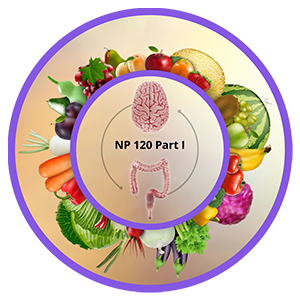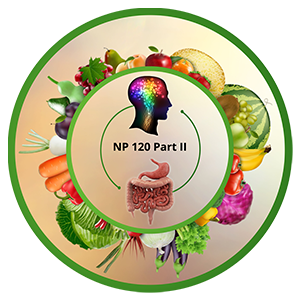

NUTRITIONAL PSYCHOLOGY (NP) EDUCATION
Building Continuing Education Excellence for Professionals
The Center for Nutritional Psychology (CNP) is a 501(c)(3) Educational Organization


Introductory Certificate in Nutritional Psychology
(NP 100 Series)
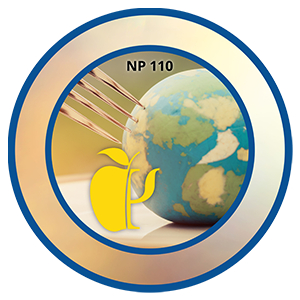



NP 110:
Introduction to Nutritional Psychology Methods
10 CE/CPE Credits
Available now
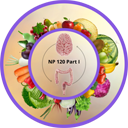


NP 120 Part I:
Microbes in our Gut: An Evolutionary Journey into the World of the Microbiota Gut-Brain Axis and the DMHR
18.25 CE/CPE Credits
Available now
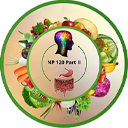


NP 120 Part II:
Gut-Brain Diet-Mental Health Connection: Exploring the Role of Microbiota from Neurodevelopment to Neurodegeneration
21.25 CE/CPE Credits
Available now




NP 150 Part I:
Mechanisms in the Diet-Mental
Health Relationship (DMHR)
35 CE/CPE Credits
Available August 2024
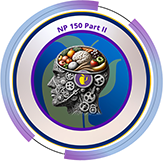



NP 150 Part II:
Mechanisms in the Diet-Mental
Health Relationship (DMHR)
15 CE/CPE Credits (Projected)
Available October 2024
Total CE/CPE projected for Introductory Certificate (118)
Applied Certificate in Nutritional Psychology
(NP 200 Series)


The NP 200 Series Certificate is applied and builds on the theoretical foundation established in the Introductory Certificate in Nutritional Psychology Certificate (NP 100 Series). The Advanced Certificate in Nutritional Psychology (NP 200 Series Certificate) facilitates the application of psychonutritional tools and education within clinical and applied settings. Scope of practice guidelines for nutrition and mental health professionals are provided to facilitate the appropriate inclusion of psychonutritional tools and education within the applied environments.
More information regarding this certificate will be available in 2025, with the first course projected to launch in June of 2025. The Introductory Certificate in Nutritional Psychology is a prerequisite for courses within the NP 200 advanced certificate.
NP 100 Series Certificate in Nutritional Psychology
Theoretical Foundation




NP 110: Introduction to Nutritional Psychology Methods
10 Continuing Education/Continuing Professional Education (CE/CPE)
Course Description: NP 110 is the foundational course in the study of nutritional psychology, and is a prerequisite for all NP curriculum. NP 110 introduces the language, concepts, and methods within the study of nutritional psychology. This includes the in-depth introduction of the six major elements characterizing the DMHR. These elements include the diet-psychological relationship (DPR), diet-cognitive relationship (DCR), Diet-Behavioral Relationship (DBR), Diet Sensory-Perceptual Relationship (DSPR), Diet-Interoceptive Relationship (DIR), and Diet-Psychosocial Relationship (DPR). Enhanced by its own language and terminology, these structures form the conceptual basis through which new research in the field can be illuminated and conceptualized.
NP 110 meets continuing education requirements for Licensed Psychologists and Registered Dietitians/Dietetic Technicians Registered. CNP is approved to sponsor continuing education through the American Psychological Association (APA), the Commission on Dietetic Registration (CDR), and the California Association of Marriage and Family Therapists (CAMFT). CNP is working to sponsoring continuing education for nurses and allied health professionals.
Course prerequisites and requirements: None. Note: This course is reading-intensive and language is science based. Must be completed in 90 days (three months) from date of enrollment.



NP 120 Part I: Microbes in our Gut: An Evolutionary Journey into the World of the Microbiota Gut-Brain Axis and the DMHR
18.25 Continuing Education/Continuing Professional Education (CE/CPE)
Course description: NP 120 Part I prepare you with the knowledge necessary to enroll in NP 120 Part II, which provides the first evidence-based conceptual model directly connecting the MGBA with the DMHR. This course introduces the MGBA and its major systems, including the gastrointestinal system (GI), central nervous system (CNS), peripheral nervous system (PNS), autonomic nervous system (ANS), neuroendocrine system (NE), enteric nervous system (ENS), the immune system, the vagus nerve, and the microbiota. The historical discoveries illuminating the MGBA’s existence are explored and the primary methods used within MGBA research are reviewed and the in-depth discussion of microbiota is presented, — including its characterization, evolution, and the major factors shaping its unique composition, abundance, and diversity.
We explore the anatomy and physiology of the gut barrier of the gut barrier and how it protects our gastrointestinal tract (GIT), internal organs, brain, and circulatory system from harmful bacteria and toxins. We learn how a weakened gut barrier increases intestinal permeability (or “leaky gut“), which sets the stage for influencing brain function, psychological processes, and mental health outcomes. The intricate structural and biochemical communication pathways linking the microbiota with the gut and the brain are presented to make way for the conceptual model presented in NP 120 Part II.
Course prerequisites: NP 110 highly recommended.



NP 120 Part II: Gut-Brain Diet-Mental Health Connection: Exploring the Role of Microbiota from Neurodevelopment to Neurodegeneration
21.25 Continuing Education/Continuing Professional Education (CE/CPE)
Course Description: This course deepens the study of the mechanisms interconnecting the microbiota-gut-brain axis with the diet-mental health relationship (MGBA-DMHR) from NP 120 Part I. We begin with the exploration of how certain foods contain keys to unlocking the mechanisms within the MGBA-DMHR, and in doing influence and shape our moods, emotions, psychological experience, social functioning, and dietary intake behavior. In this course, you’ll gain knowledge of the major MGBA-DMHR mechanisms including myelination, synaptogenesis, neural plasticity, neurogenesis, hormones, neuropeptides, gut peptides, short-chain fatty acids, BDNF, and the guardians of the brain—the mighty microglia. These mechanisms operate within an intricate symphony to orchestrate and influence our psychological states, moods and emotions, social behavior, stress experience, resilience, cognitive processes, dietary intake behaviors, and mental health outcomes. By the end of this course (and two part series), you’ll understand the intimate role these mechanisms play in the development of psychological, psychiatric, neurodevelopmental, and neurodegenerative diseases.
This course provides professional with a complete conceptual model through which to understand how the microbiota gut-brain axis interconnects with dietary intake patterns to influence all aspects of the diet-mental health relationship.
Course prerequisites: NP 120 Part I




NP 150 Part I: Mechanisms in the Diet-Mental Health Relationship (DMHR)
35 Continuing Education/Continuing Professional Education (CE/CPE)
NP 150 Part I introduces innovative mechanisms influencing the diet-mental health relationship (DMHR) and is the final course in the Introductory Certificate in Nutritional Psychology (NP 100 Series). This course is a cornerstone in the emerging field of nutritional psychology and focuses on illuminating the mechanisms by which diet impacts DMHR.
In the context of DMHR, a mechanism refers to the detailed series of events or processes at the molecular, cellular, or physiological level enacted through dietary intake. These processes involve complex biochemical pathways, molecular interactions, and cellular processes that influence our mood, cognition, and behavior and collectively contribute to our overall functioning and mental health.
Mechanisms explored in this course include macronutrients, micronutrients, nutritional deficiencies, phytonutrients, and neuroactive compounds. Topics include dietary patterns, the microbiota-gut-brain axis, early life nutrition, hormonal regulation, and neuroendocrine pathways. Key brain structures such as the amygdala, hippocampus, prefrontal cortex, hypothalamus, and striatum are analyzed in relation to emotions, memory, decision-making, appetite, and food-seeking behaviors. The course covers the impact of dietary intake on neurotransmitters, neurogenesis, neural repair, neuroplasticity, neurotrophins, neuropeptides, and neuroinflammation.
Additionally, we investigate how dietary patterns and specific nutrients influence immune-brain communication, inflammation, oxidative stress, microglia, mitochondrial function, and the blood-brain barrier. These insights are examined in the context of their effects on psychological functioning and clinical mental health disorders. View the Course Flyer here.
This course, in conjunction with NP 110 and NP 120 Parts I & II and NP 150 Part II, constitutes a crucial element of the Introductory Certificate in Nutritional Psychology (NP 100 Series). Upon completing this course, students are equipped with essential knowledge and critical insights to bridge the gap between nutritional science and mental health. These skills can contribute positively to the well-being of individuals and communities worldwide.
Course prerequisites: None. It is preferred, particularly if you wish to obtain the Certificate in Nutritional Psychology, that you begin with NP 110, NP 120 Part I, NP 120 Part II as prerequisites for NP 150 Part I and II.




NP 150 Part II: Mechanisms in the Diet-Mental Health Relationship (DMHR)
18.25 Continuing Education/Continuing Professional Education (CE/CPE)
NP 150 Part II (available early 2024) introduces innovative mechanisms influencing the diet-mental health relationship (DMHR). The cutting-edge course creates fresh opportunities for exploration, delving into the complex and reciprocal relationship between nutrition and psychological well-being. It provides students with a thorough comprehension of how dietary choices can significantly affect mental health outcomes and how this knowledge can be effectively applied in clinical and public health contexts. By skillfully combining evidence-based research and intriguing perspectives, this interdisciplinary course thoroughly investigates the diverse biological, psychological, and social mechanisms that form the intricate connection between our dietary choices and mental well-being.
NP 150 Part II, in conjunction with NP 110 and NP 120 Parts I & II, constitutes a crucial element of the Introductory-Level Certificate in Nutritional Psychology (NP 100 Series). Upon completing this course, students will be equipped with essential knowledge and critical insights to bridge the gap between nutritional science and mental health. These skills can contribute positively to the well-being of individuals and communities worldwide.
If you’re passionate about making a difference in mental health, we invite you to embark on this enlightening journey of discovery with us!
Course prerequisites: NP 120 Part I
Who is Nutritional Psychology Education for?
- Mental Health Practitioners: Psychologists, Marriage and Family Therapists, and Mental Health Counselors who seek to enhance their understanding of the role of nutrition in mental health and its implications for therapeutic interventions.
- Nutrition and Wellness Specialists: Dietitians, Nutritionists, Health Coaches, and Culinary Chefs who aim to augment their expertise by exploring the intricate connections between dietary patterns and psychological well-being.
- Academia: Undergraduate, Graduate, and Post-Doctoral Students in various related fields, including psychology, nutrition, and health sciences, seeking comprehensive insights into the field of Nutritional Psychology.
- Healthcare and Social Service Professionals: Case Managers and Social Workers interested in integrating nutritional principles into their practice, fostering holistic approaches to mental health care.
- Educational Practitioners: Educators and School Counselors who recognize the significance of nutrition in students’ cognitive development and emotional regulation.
- Substance Use Therapists: Substance Use Counselors eager to comprehend the interplay between nutritional factors and mental health in the context of addiction and recovery.
- Medical Practitioners: Nurses, Physicians, Psychiatrists, and Physician Assistants who wish to deepen their awareness of the microbiota-gut-brain axis and its implications for mental health management.
- Enthusiasts and Self-learners: Individuals from diverse backgrounds who possess a genuine interest in unraveling the intricate relationship between the microbiota-gut-brain axis, diet, and mental health.
- Public Health Professionals: Public health officials and professionals working in community health programs could gain insights into how nutrition and psychological factors intersect to affect the well-being of populations.




- Wellness Coordinators: Professionals responsible for designing and implementing workplace wellness programs can benefit from understanding the psychological aspects of nutrition and how they influence employees’ mental health and productivity.
- Fitness Professionals: Personal trainers, fitness coaches, and exercise physiologists may benefit from understanding the relationship between nutrition, psychology, and mental well-being, as it can impact their clients’ overall health and fitness journey.
- Researchers and Scientists: Professionals from various scientific disciplines studying gut-brain interactions, nutrition, and mental health could benefit from a broader perspective through a Nutritional Psychology course.
- Occupational Therapists: As experts in helping individuals with various mental health challenges, including stress and anxiety, they might benefit from understanding the role of nutrition in mental health.
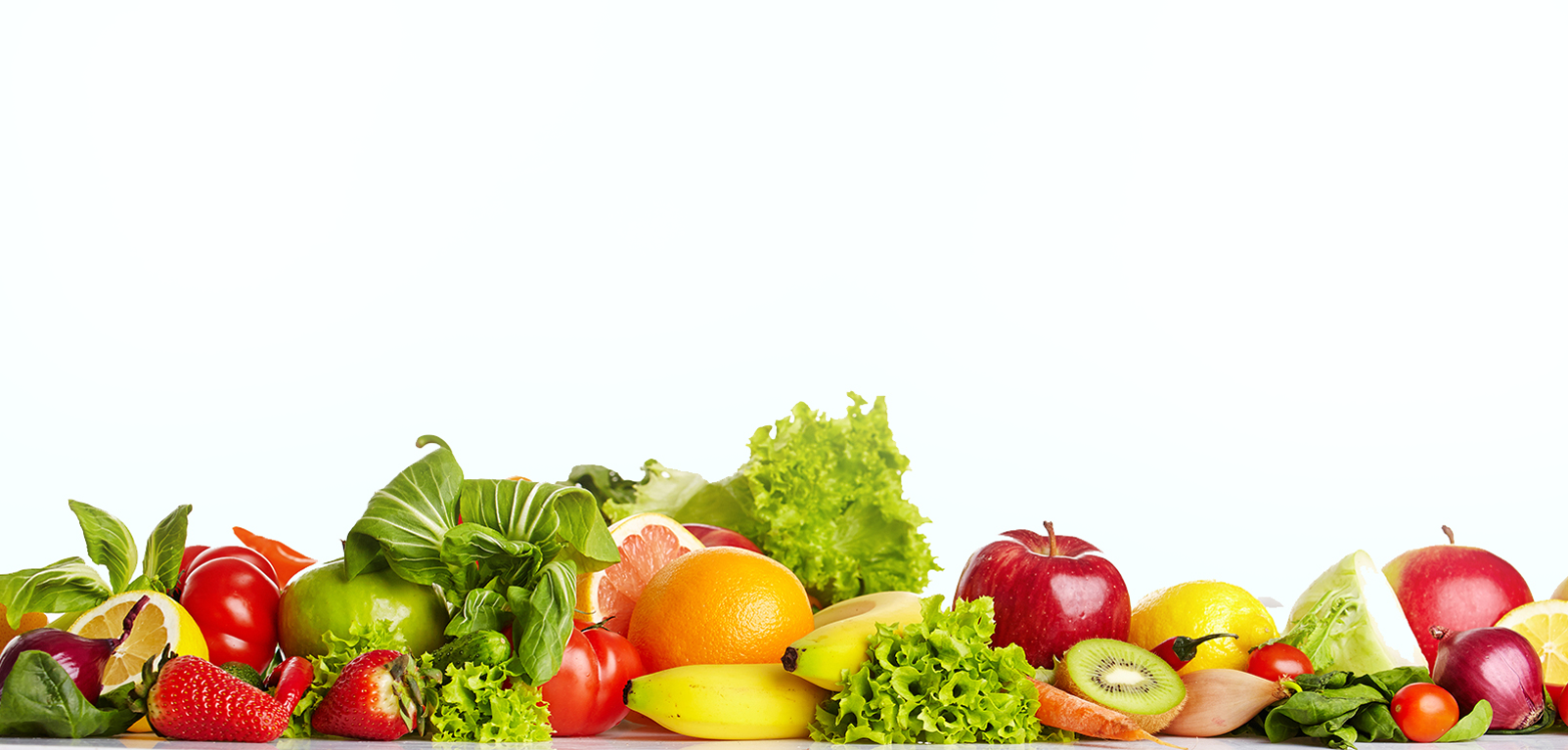

JOIN OUR COMMUNITY
Take steps to develop your understanding of the relationship between diet and mental health. Together, we can build a new model of mental healthcare to include this important piece of the puzzle.

